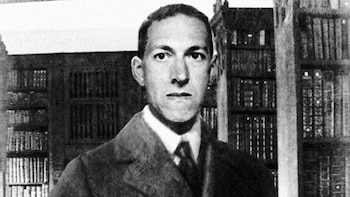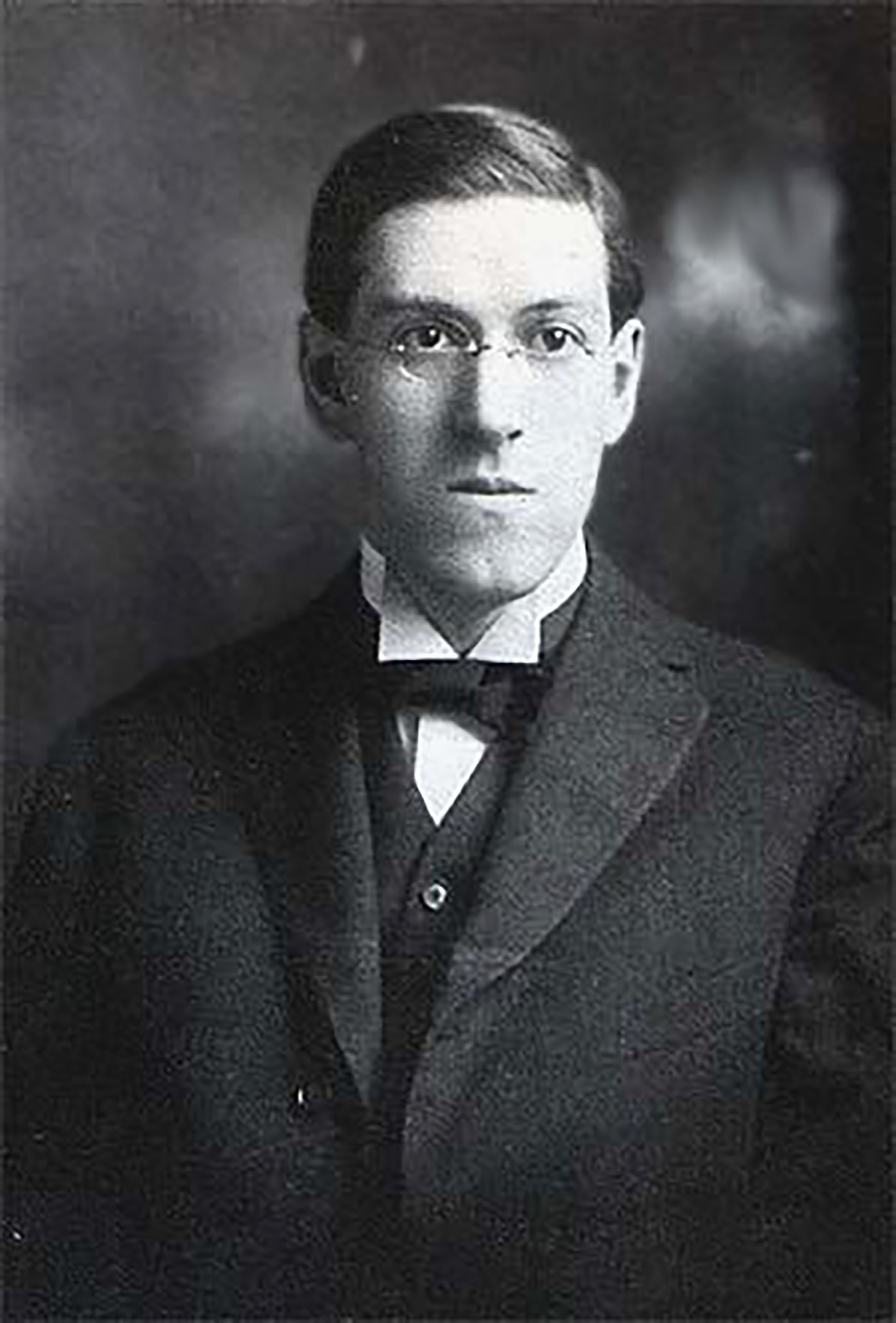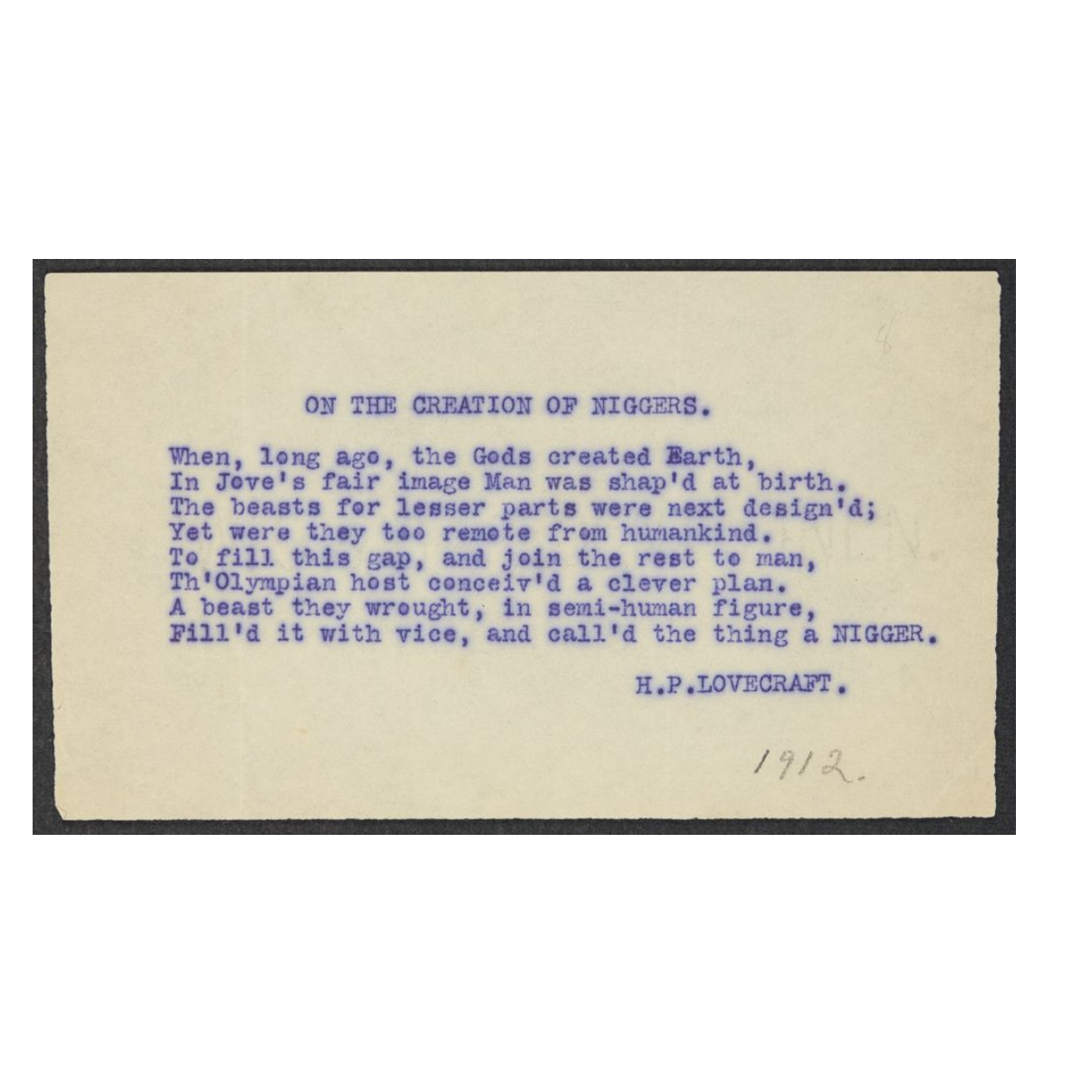
Howard Philips Lovecraft is considered to be one of the greatest exponents of the 19th century horror genre, since even in our time its influence is taken into account for films or television series.
The author of “The Alchemist” and other stories had a long face and a prominent jaw, “foreigner in his time, maybe genius, maybe crazy”, but something that is considered and not many people know is about his racist thinking.
As mentioned in the edition of the Longseller publishing house, “In the same way, he was described as anti-Semitic, xenophobic and reactionary, characteristics that, in some way, he himself has recognized as his own and which, moreover, are clear from his writings. But, with regard to its ideology.”
In the same text he mentions that there are some contradictory facts, since “the author declared himself anti-Semitic, but his wife and many of those around him and received signs of their affection and consideration were Jews; as an adult”.

And although many of his followers know this personality of the author, some of those who knew him and the data written about him mention that he showed a degree of sensitivity, it is incomprehensible that he did not show “the life, pain and dignity of his peers by expressing his ideas”.
In a passage from his childhood it is mentioned that Lovecraft caught a squirrel and in the end killed him, causing the boy to have regrets for a long time, as they kept harassing him. In addition, some descriptions of the author read that his friends described him as loyal, gentle and kind.
“Singular artist or mentally ill”, even if you have no idea what really happened to Lovecraft, something that is known is that he was a writer whose work gave a Copernican turn to horror literature and who opted for the genre of the supernatural “to satisfy a desire that troubled him”, that's how he wrote it in his latest essays titled Collected Essays. (Hippocampus Press: 2004).
“I choose supernatural tales because they are the ones that best match my indications; one of my strongest and most persistent desires is to achieve, momentarily, the illusion of a strange suspension or violation of the irritating limitations of time, space and natural laws that imprison us forever and frustrate our curiosity about the infinite cosmic spaces, beyond the radius of our sight and analysis”.
Lovecraft's Racism

Lovecraft himself said he was racist, something that in the 19th century in the United States there was no problem. However, during the years that there has been a transition in human rights, Amnesty International placed the story that talks about African-Americans, of which it refers to the text entitled “On the Creation of Black People”.
“Lovecraft felt anglophile, loyal to times before his homeland's Declaration of Independence, rejected the modern world and declared himself 'a Victorian gentleman', prone to rigidity and conservatism.”
In this text they ask the question “Should the circulation of literary works with racist content or other values contrary to human rights principles (homophobia, machismo, etc.) be restricted?”
The original of this text is in the Brown Digital Repository of the Brown Library.
KEEP READING:
Últimas Noticias
Debanhi Escobar: they secured the motel where she was found lifeless in a cistern
Members of the Specialized Prosecutor's Office in Nuevo León secured the Nueva Castilla Motel as part of the investigations into the case

The oldest person in the world died at the age of 119
Kane Tanaka lived in Japan. She was born six months earlier than George Orwell, the same year that the Wright brothers first flew, and Marie Curie became the first woman to win a Nobel Prize

Macabre find in CDMX: they left a body bagged and tied in a taxi
The body was left in the back seats of the car. It was covered with black bags and tied with industrial tape
The eagles of America will face Manchester City in a duel of legends. Here are the details
The top Mexican football champion will play a match with Pep Guardiola's squad in the Lone Star Cup

Why is it good to bring dogs out to know the world when they are puppies
A so-called protection against the spread of diseases threatens the integral development of dogs




